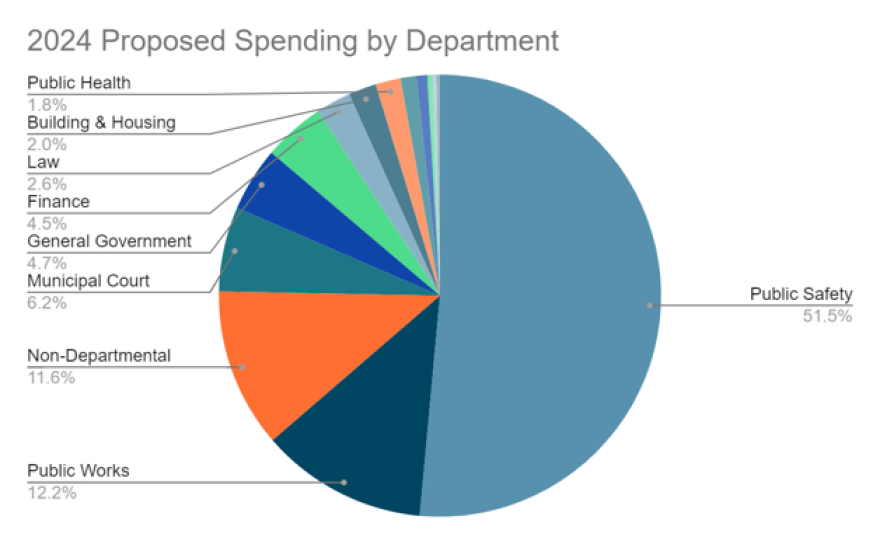Cleveland City Council will begin their weeks-long hearings on the $1.65 billion 2024 budget next week.
But what exactly goes into the budgeting process, and what's in it this year?
How the city budget is approved
Ahead of the mayor's budget proposal, council will receive updates from the city's departments and state their expectations for the upcoming budget cycle.
On February 1, the mayor releases his budget proposal: a 400-plus page document laying out each department's budget and staffing.
In mid-February, Cleveland City Council will hold two weeks of hearings with the administration and each department, after which, they will modify the proposed budget and vote to approve the final draft.
The final budget must be balanced, meaning expenditures cannot exceed revenue, and must be approved by April 1, per the city's charter.
Where does the city's money come from?
Income tax is the primary source of revenue for the city's general fund. Nearly two-thirds, 63%, of the city's revenue comes from a tax on employees who work within Cleveland city limits, which may include people who are not residents.
Other revenue sources include taxes on property, parking, hotels, casino revenue, fines and more.

What's in the 2024 budget proposal?
The majority, 72%, or $563 million, of the entire budget goes toward salaries and benefits for the city's employees, which include:
- 61 Cleveland City Council employees, 17 of whom are council members
- 426 judicial employees (Municipal, Clerk of Courts and Housing court)
- 4,113 employees within the administration, including public safety, finance, law, public health, building and housing and more.

Roughly half of the general fund is budgeted for the public safety department, which includes police, fire and emergency medical services.
Earlier this month, Bibb laid out plans to slash some of those positions for the second year in a row, including 148 vacant officer positions: a decision that has proved unpopular among some council members and residents. But his administration said this proposal will not impact day-to-day operations and will make room for raises and benefits to ultimately grow the dwindling police force.
The second largest investment is in public works, which manages streets, waste and more.
This year, "non-departmental" expenses make up nearly 12% of the budget. This is because Mayor Justin Bibb and Chief Finance Officer Ahmed Abonamah changed the way they classify some vacant positions: lumping them into non-departmental instead of the departments the positions would be assigned to.
This has caused some discomfort for some council members, who called the move "confusing" and "not transparent" in a recent committee chairs meeting on Feb. 5.
Bibb's administration said the change allows the city to "enhance flexibility for vacant positions to prevent open slots from being concentrated in a few departments."
What happens next?
There is no regular City Council meeting on Monday (Presidents' Day). The next day, council begins its two-week-long hearings before amending and approving the finalized budget.
Residents may attend the public hearings in person at Cleveland City Hall in the Mercedes Cotner Committee Room 217. The hearings will also be livestreamed on Council's YouTube page and TV20.



